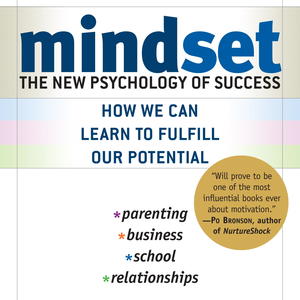 The conference room is silent in the midst of an emotional moment of contrition by Coach Pete Bell. Coach Bell has just won the NCAA championship. But he has not really won it. The scene is not a happy one.
The conference room is silent in the midst of an emotional moment of contrition by Coach Pete Bell. Coach Bell has just won the NCAA championship. But he has not really won it. The scene is not a happy one.
Coach Belle is being confronted by a reporter (Al Bundy), about the truth of rumors that he bought players to win this title. He comes clean. He sold out on the sport he loves, he regretfully admits.
And so, Coach Bell, now extremely aware of his imminent indictment, passionately delivers the truth to all to us. His frustrations, his mistakes, and the principles and lessons he has only just now come to realize.
As a viewer, even through the TV screen, you can feel a certain shift in the mood of the room; in the environment of your own body.
Coach Pete delivers his greatest lesson to a atypically silenced media room. He begins to tell about the time he did his best coaching job. Which was not that season. Not by a long shot. It was actually during a “losing season.”
“The best coaching job I ever did, that wasn’t tonight. It was last season…we had a losing season. But g*dd@mnit, those kids, they gave me their HEARTS! They gave me everything they had! They played up to the MAXIMUM of their ability!” Coach Pete, Blue Chips (movie).
Now of course, this is just a movie. You could, if you wanted to, shrug this message off if you’d like to.
You could wipe under the rug the messages of movies and plays. You could disregard your feelings (and lessons learned) at the end of Shawshank, Gladiator, or even Rudy. Even To Kill a Mockingbird, Gatsby, or Shakespeare.
Well, you could, but you’d be ignoring the real evidence. The real histories, and now, the decades of research…
***
According to Hall of Fame NCAA coach, Jon Wooden, the best season he ever coached was not one in which he won one of his ten NCAA titles. Just like Coach Pete.
Why? How could you do better than winning the championship?!
To coach Wooden, real success is not measured in wins and losses. It is based on his ability to help improve his individual players in getting them to see the potential in themselves. A similar outlook on success is shared by Hall-of-Fame NFL coach, Bill Walsh, famed GE CEO, Jack Welch, and IBM savior, Lou Gerstner.
Stanford Psychologist, Carol Dweck, has spent her career researching what great leaders like these have in common. The answer is simple: the share a similar and specific world view; a specific “mindset.”
[Read about my realization into my fixed mindset here].In her fundamentally mind-changing book, Mindset: The New Psychology of Success, Dweck describes the findings of her transformative research. Here’s Dweck:
“In this book, you’ll learn how a simple belief about yourself…guides a large part of your life. In fact, it permeates every part of your life. Much of what you think of as your personality actually grows out of this ‘mindset.’ Much of what may be preventing you from fulfilling your potential grows out of it.”
Dweck defines and describes two opposing Mindsets that most people possess: (1) a ‘Growth Mindset’ and / or (2) a ‘Fixed Mindset.’
Dweck’s decades of research reveal that Growth-minded people believe that “human qualities, such as intellectual skills, could be cultivated through effort…not only weren’t they discouraged by failure, they didn’t even think they were failing. They thought they were learning.”
Conversely, Fixed-minded people “thought human qualities were carved in stone. You were smart or you weren’t, and failure meant you weren’t…If you could arrange successes and avoid failures (at all costs), you could stay smart. Struggles, mistakes, perseverance were just not part of this picture.”
The good news: there’s still time to change!
Throughout the book, Dweck uses the uber-successful in business, sports, parenting, and teaching to tease out a commonality discovered in her forty years of research and experimentation. And she contrasts it with the mighty whom have since fallen.
Is talent fixed? Are you either a good artist or not? Are some kids not able to be taught? Should we praise our kids on intelligence or hard work? Does it matter?
Dweck has some compelling answers to these questions. And she also has some suggestions for how to change. That is, if you are willing to. If you’re willing to make the investment and the effort. This is not a short-term approach.
I am not sure any single book has changed my mind so fundamentally in the last 5-10 years.
Mindset forces us to reflect on the those stubborn, Fixed times in our lives and draws a clear and encouraging path to change and Growth. The book is simply indispensable.
Read it.
A lot.



2 Comments on “Mindset: Stanford’s Carol Dweck, the ‘Growth Mindset,’ and its Impact on Success”
Dweck should put you on her payroll.